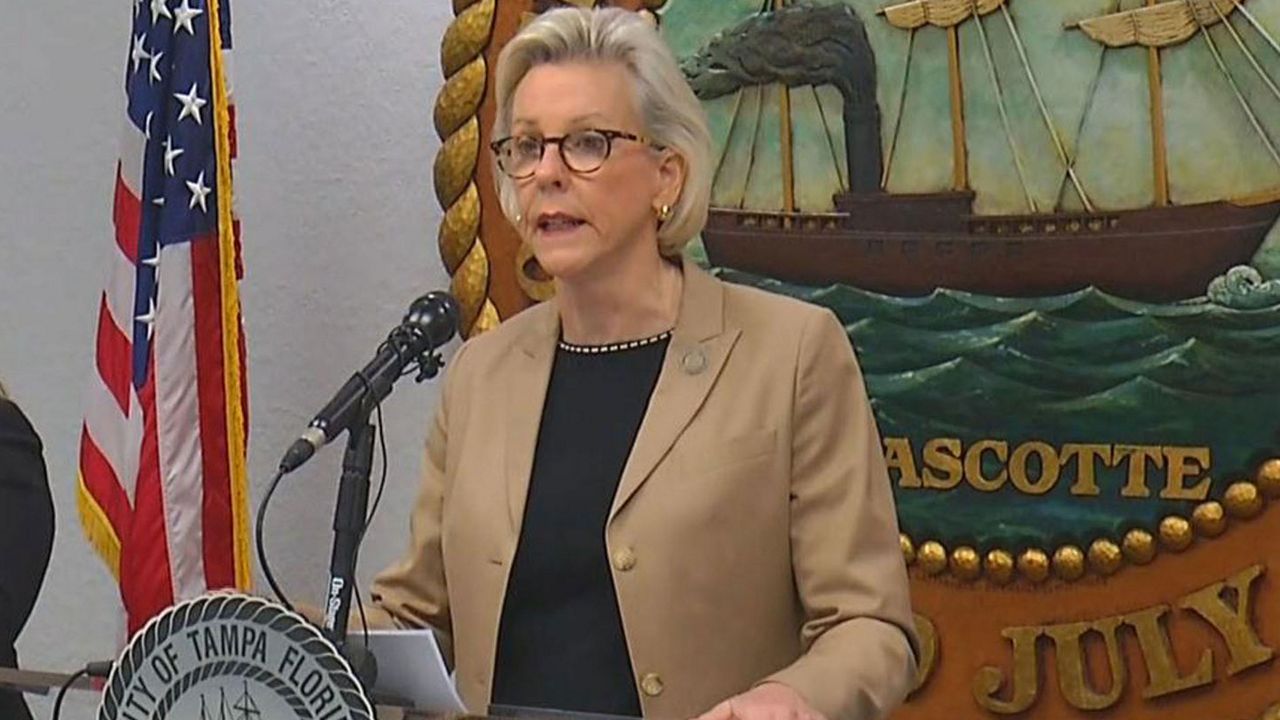TAMPA, Fla. - The Tampa City Council unanimously approved having the city’s legal department review seven proposed changes to give more power to the city’s Citizen’s Review Board (CRB) today, including giving it subpoena power, a request that activists have been calling for since the board was created five years ago.
That proposal received immediate pushback from Mayor Jane Castor’s administration.
“Our position is that it can only be granted thru statute or through the Charter,” said Tampa city attorney Gina Grimes, adding that the council itself only has limited subpoena powers.
“You do not have the power to simply grant to the CRB broad subpoena powers for witnesses at their hearings,” she said. “You yourself don’t have it, so how could you in fact delegate it to a different body?”
Mayor Castor has maintained granting subpoena powers to the CRB is a non-starter, citing a 2017 Florida Supreme Court ruling that said such boards can’t compel officers to appear while under investigation because it violates the state’s Officer’s Bill of Rights.
But Councilman John Dingfelder said his proposal would not allow the board to subpoena police officers – and might never actually be used at all by the CRB.
“Just for the fact that they have it might make people more willing to come forward and discuss these issues with that,” he said.
The discussion took place during a council workshop, where Grimes and another city attorney discussed Mayor Castor’s own proposed changes to the CRB that she announced two weeks ago. It was her response to the calls for police accountability that have taken place in Tampa following the death of George Floyd in late May.
Castor’s proposals received relatively positive reviews from members of the council, but advocates for the ACLU and the group Tampa for Justice still believe that the mayor and the police have too much control over the group, which critics have castigated as being toothless since it was created in 2015.
“Subpoena power is so important in this context because that it is what ensures that the CRB can independently collect information from the original source without having to go through the filter of the police department,” said attorney Jamie Klapholz with Tampa for Justice. “Oversight boards in general rarely exercise their subpoena because the very existence of that power is usually enough to prompt volunteer cooperation from witnesses.”
The council approved seven measures that they requested that the mayor’s legal staff review and come back to discuss in September. They are:
1 – Giving the City Council the ability to select the majority of members of a future CRB. The proposal would give the mayor the power to select 4 members to the 11 member-body, with the seven councilmembers getting one selection each.
2 – Giving the CRB subpoena power.
3 - Giving the CRB their own independent counsel.
4 - Provide the CRB their own independent staff.
5 - Allow community members to be part of a newly formed Tampa Police interview panel on hiring new officers.
6 – Have CRB members come before the city council annually for a report.
7 - Have quarterly public CRB meetings spread out throughout the city.
Although the proposals were supported unanimously by all seven councilmembers, three of them emphasized that that they were voting yes just to advance the discussion.
“We are not endorsing any of these items,” cautioned Councilman Luis Viera. “We’re moving to push these forward in regards to a narrowly tailored discussion on these issues.”
The public discussion came a day after an attorney representing the Tampa Police Benevolent Association wrote to councilmembers regarding Castor’s proposed changes to the CRB, which he said “may violate existing law” if implemented.
Attorney R. Jeffrey Stull wrote that allowing the CRB coordinator and the CRB chair to review complaints on a weekly basis through a separate email chain would cause the CRB “to violate the confidentiality provision” of state law and cause police personnel who provide required information to the CRB “to commit misdemeanors” by violating a provision of state law.
“CRB members and even Council members would be accessories,” he added.
The city’s legal staff will come back after reviewing the proposals at a workshop on September 24.



